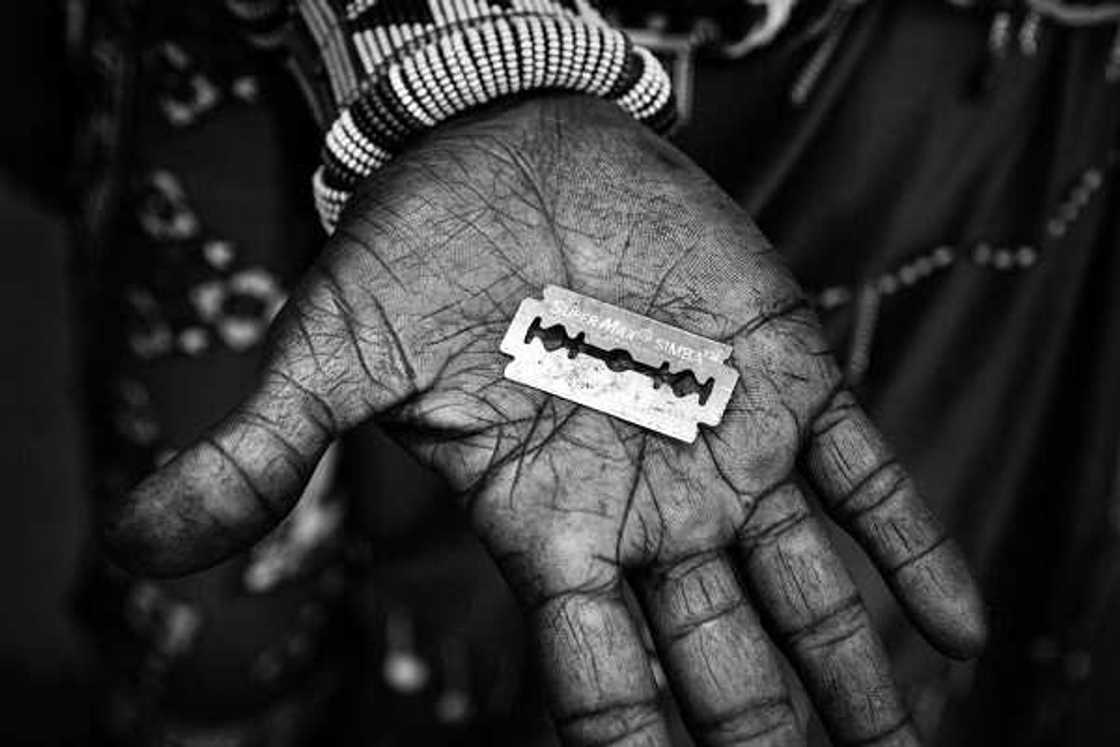Infant Dies from Suspected FGM Complications in The Gambia, Police Confirm
- A one-month-old baby girl died in The Gambia from suspected complications linked to Female Genital Mutilation, police confirmed
- Two women were arrested in connection with the incident, which sparked outrage from rights groups and renewed calls for enforcement of the FGM ban
- The tragedy came just months after Gambian lawmakers rejected a controversial bill that sought to overturn the country’s 2015 ban on FGM
Authorities in The Gambia have confirmed the death of a one-month-old baby girl following reported complications from suspected Female Genital Mutilation (FGM).
The incident, which has sparked widespread condemnation, is being investigated by police in Wellingara, who have detained two women in connection with the case.

Source: Getty Images
In an official statement, police said:
“Initial findings show say di pikin bin dey allegedly subjected to circumcision and later come start to get serious bleeding. Dem come rush am go Bundung Maternal and Child Health Hospital wia dem pronounce am dead on arrival.”
FGM is illegal in The Gambia under a 2015 law, which stipulates a prison sentence of up to three years for those found guilty. However, if the procedure results in death, perpetrators may face life imprisonment.
Rights groups react to suspected FGM-related death
The Edward Francis Small Centre for Rights and Justice welcomed the arrests, stating that it could serve as a deterrent to others.
The group said:
“We dey call on di ministry wey dey responsible for children to ginger increase public awareness and monitoring and enforcement of di law so dis kain tin no go happun again.”
Meanwhile, Women In Leadership and Liberation (WILL), an NGO advocating for gender justice, criticised the authorities for failing to protect children. In a strongly worded statement, the group declared: “Culture no be excuse, tradition no be shield, dis na violence, pure and simple.”
Fatou Baldeh, founder of WILL, told the BBC:
“Parents feel like if dem cut dia girls as babies dem go heal sharparly, also bicos of di law e go dey easier to disguise so pipo no go know.”
Gambian lawmakers reject FGM ban reversal
In July 2024, Gambian lawmakers rejected a controversial bill that sought to reverse the 2015 ban on FGM. The draft legislation, introduced by Almameh Gibba and initially approved by a majority of MPs, was ultimately dropped before reaching a second reading.
The move followed intense lobbying by human rights organisations and the United Nations, who urged parliamentarians to uphold the ban amid pressure from some Muslim clerics.
FGM remains prevalent despite legal ban
The Gambia remains among the top ten countries globally with the highest rates of FGM. According to United Nations data, 73% of Gambian women and girls aged 15 to 49 have undergone the procedure. Amnesty International further reports that three in every four girls in the country experience FGM before the age of six.
The most severe form of FGM involves the removal of the clitoris and cutting of the genitals, followed by stitching to close the vaginal opening—leaving women unable to engage in sexual activity or experience pleasure.

Source: UGC
Expert says mutilated women cannot enjoy lovemaking
Legit.ng earlier reported that Dr. Esther Somefun, a Gender and Reproductive Health Analyst, on Sunday, says that women who have undergone Female Genital Mutilation (FGM) find it difficult to enjoy lovemaking.
Somefun, work with the United Nations Population Fund (UNFPA) told the News Agency of Nigeria (NAN) that it was difficult for circumcised women to enjoy pleasure due to the complications of FGM.
She described FGM also known as female circumcision, as the partial or total removal of female external genitalia due to non-medical reasons.
Proofreading by Funmilayo Aremu, copy editor at Legit.ng.
Source: Legit.ng




